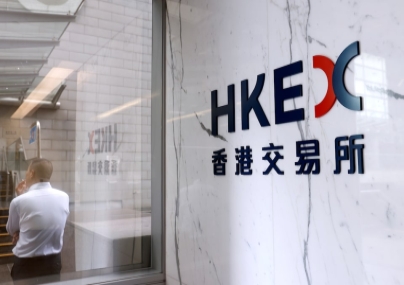
华南地区是中国对外开放的窗口,近年,尤其粤港澳大湾区的制造、科创、新能源、电商、互联网等企业成为中国出海“主力军”,愈发深入的海外本地化运营也对企业海外合规提出了更高要求。在此背景下,华南律所纷纷创新“出海”法律服务模式、强调培养涉外法律人才, ALB与华南领先律所管理者聊了聊此方面的经验与挑战。
2024年初,华南美国商会发布《2024年华南地区经济情况特别报告》,即便在地缘政治环境复杂、全球主要经济体增速降缓的情况下,《报告》仍对华南地区的发展寄予厚望。
《报告》指出,粤港澳大湾区的建设已进入第五年,在其带动下,“华南地区有望在未来五年成为新的科技创新枢纽,打造新的商业模式/机会,成为推动中国贸易和经济发展的主要动力”。
华南地区经济活力的来源之一是其深厚的涉外属性,而其对外交往的具体模式也在过去两年发生着变化。“华南经济的对外连通性一直很强。”通商律师事务所合伙人刘问律师说,“以前主要是以产品贸易的方式走出去,现在受到制裁等因素影响,部分华南企业开始直接把工厂搬到海外。”
因此,制造业企业的出海趋势特别明显,“尤其是那些产品外销欧洲、美国、俄罗斯等‘敏感地区’的企业,选择去往东南亚、墨西哥等地设厂”。
天达共和律师事务所大湾区办公室管委会主任林泽军律师指出,2023、2024两年,和全国范围内的企业一样,华南企业经历着一场“深度、广度、范围前所未有的出海浪潮”。
他也观察到制造业企业将工厂向海外搬迁的趋势,“有些企业甚至将部分研发中心搬到海外;一些大体量公司的出海不再局限于单一东道国,而是将一系列国家视为目的地,开始在海外建立整套供应链体系,整合不同国家和地区的生产资源和技术”。
刘问律师对此也有同感:在最近遇到的一个咨询案例中,某企业就希望在北美、印度、俄罗斯等几乎所有主要市场打造业务网络,因此要求合作的中国律所也具备覆盖全球的服务网络,“这非常有挑战,需要律所调动很多资源”。
另一类受到高度关注、且极具创新性的出海类型聚焦于高科技、互联网产业企业。
“随着中国背景的数字化跨国公司成长壮大,他们开始把研发、商业模式带到海外。”林泽军律师说,“这类企业的出海特别具有象征意义:他们只投入少量的人力和资本,依靠数字化商业模式驱动,只用少量的投入便换取快速的发展。”在天达共和近期服务的一个项目中,“客户从决定出海到在东道国落地运营只用了半年时间。这是前所未有的速度”。
随着中国背景的数字化跨国公司成长壮大,他们开始把研发、商业模式带到海外。他们只投入少量的人力和资本,依靠数字化商业模式驱动,只用少量的投入便换取快速的发展。
- 林泽军,天达共和律师事务所
刘问律师也观察到高科技、互联网企业强大的出海诉求,不过他指出,TikTok在美国被要求强制剥离的情况对互联网行业客户影响非常大,“客户将业务推向全球的过程中非常谨慎,为避免重蹈TikTok覆辙,不再采取早先业务先行的模式,现在都是法律前置”。
他举例说明:通商深圳过去10个月来在和一家互联网客户沟通,协助其向日本市场拓展AI业务。“客户前期要求我们展开大量论证,探讨当地运营的可行性,并且仔细考察了律所在当地的法律资源情况。如今企业开拓新市场时,真的是要求业务和法律并肩同行。”
作为制造业和创新重镇,华南出海产业中另一个备受瞩目的类型是电动汽车产业。
作为华南龙头企业广汽集团旗下的电动车品牌,广汽埃安在过去两年积极出海,泰国是其首个海外市场。根据媒体报道,2023年初广汽埃安在“没有办公室,没有工厂,没有当地员工”的情况下来到泰国,2024年1月便启动泰国工厂建设,7月中旬该工厂正式投产。
在此过程中,广悦律师事务所“为广汽埃安在泰国投资和建厂提供了全流程服务,广悦(泰国)办公室还担任了广汽埃安的常年法律顾问”,广悦荣誉主席、高级合伙人王敬律师告诉ALB。
回顾这一项目,王律师感慨道:“这是广悦第一次进行汽车出海的全流程法律服务,泰国工厂落地过程中,我们在法律合规性、市场准入、数据出海、文化差异与沟通等方面遇到不少挑战。其中涉及到很多需中国发改委审批的事项,需要律师跟政府方面不断沟通;广悦也利用在泰国市场的伙伴资源,积极和泰国相关部门沟通,争取有利的政策支持和优惠待遇。”
项目中另一个难点在于数据出海。王律师介绍道:“广悦涉外法律服务团队联合互联网与数字经济团队,由杨杰律师带领互联网团队从数据合规着手,对广汽汽车数据处理现状进行尽职调查,输出了一系列合规评审指南及数据合规管理系统,确保了出海的合规性和安全性。”
深度信赖与全新模式
更深、更广的出海诉求之外,在出海法律伙伴的选择上,这一次中国企业也经历了变化。
过去,面对大型出海项目,中国企业更倾向于和传统英美大型律所合作,因为他们网络广、品牌硬、服务质量有保障;今天,中国企业则更多将中国律所作为出海项目的牵头方。
刘问律师坦言他也观察到了这种变化,背后的原因可能有两个:“第一,中国监管机构目前对于企业境外投资有很多要求,企业首先需要满足境内监管要求,然后才涉及海外运营要求,此外还要考虑企业投资目的地法律和中国法律之间可能存在的冲突问题。”
第二,以前中国企业的对外投资要遵循其他国家的规则,然而伴随中国在世界贸易中拥有越来越强的话语权,成为主要“玩家”,中国逐渐希望成为规则的输出方,因此更倾向于选择自身熟悉的法律伙伴,共同探索出海之路。
中国逐渐希望成为规则的输出方,因此更倾向于选择自身熟悉的法律伙伴,共同探索出海之路。
- 刘问,通商律师事务所
这样的变化极大扩展了中国律师在企业出海过程中的服务广度与深度。
过去两年,环球律师事务所深圳办公室主要服务于制造、矿业、基础设施、新能源、建筑业、农业等领域客户的出海需求。“从法律服务内容来说,目前常规海外投资备案业务已不是客户的刚需;客户的重点转移到了境外侧的法律服务需求,比如当地的企业注册、公司治理、劳动用工、知识产权、税务海关等。”
“对于这类需求,越来越多客户希望由中国律师牵头,协调海外合作律师对接企业日常涉外合同、合规、贸易,乃至投资前期相关法律咨询。”环球深圳告诉ALB,“除去协调境外侧法律服务,中国律师还能够在企业出海项目中提供境外投资、税筹架构搭建、跨境知识产权(技术进出口、商标国际注册、专利PCT注册等)、出海数据合规、跨境争议解决等前沿法律服务。”
扩展的服务内容之外,林泽军律师指出,此番中国企业“全面出海”的浪潮也呼求一种全新的法律服务模式。
林律师说:“既往那种在中国和东道国各找一家律所、两方合作协助中国企业落地的服务模式已经不够了。”伴随中国企业在全球范围内整合资源,成长为新一代、made-in-China的跨国企业,“我们要依据跨国公司的要求,帮助出海企业打造跨境的法律、财税、组织架构”。
具体来说,对于一家跨国企业,出海控股平台、运营中心、财务中心、供应链中心、人力中心、IP中心等应该放置在何处,“全都要利用全球化思维、在不同法域里做最优布局,随后用一个完整的跨境法律架构组织起来”。架构问题解决后,“才聚焦到在东道国的落地问题。落地过程中,要注意将控股平台和东道国的情况连接起来,此外还要考虑融资便利性、未来退出的成本及便利性等诸多细节问题”。
为此,天达共和大湾区办公室组建了一支由8位合伙人、20余位律师组成的出海团队,目前已经服务于多领域、多区域的出海项目。此外,2023年起,大湾区办公室开始推行“法商财税综合性服务”,当这一模式移植到出海领域,林律师发现两者间有极高契合度。
“尤其目前互联网公司将中国内地的商业模式移植到海外,法商财税服务能够为客户提供在商业模式上可行、在法律上合规、在税务上最优的综合性解决方案。”林律师告诉ALB,目前天达共和出海团队中吸纳了三位分别负责财务、税务、商业模式咨询的资深顾问,“他们都曾在四大担任合伙人,能够和律师紧密合作,为出海企业提供法律、财税、组织架构三位一体的服务”。
香港的平台角色
身处华南地区、作为中国重要的对外窗口,香港在此轮出海浪潮中扮演着怎样的角色?
林泽军律师指出,香港借助与中国内地的资源互通、作为中岸地低廉的交易和税务成本,以及作为金融中心的融资便利,“一直是中国企业出海设立控股平台时不可替代的选择,它扮演的角色也会越来越重要”。
尤其2023年以来,林律师观察到香港推出了一系列吸引民营企业落地的政策,例如家族办公室政策、税收优惠,以及近期的“专利盒制度”。“专利盒”是一种税务优惠,指的是通过研发活动创造的具资格知识产权,其源自香港所得的利润可获税务宽减,“这会吸引内地企业把研发及IP中心放到香港,进一步推动出海企业在港设立控股平台”,林律师说。
环球深圳办公室也指出,很多出海架构都以香港作为境外第一层架构连通境内企业和境外项目,“其中不乏以香港公司作为收并购主体的情况。相应地,香港法和香港诉讼仲裁也越来越多成为境内企业出海项目中的管辖法和争议解决方式”。因此,注册香港公司及日常维护、对香港公司开展法律尽职调查、出具香港法律意见、从香港法角度提供交易层面的建议、后期争议解决等已经形成了一条龙法律服务。
“此外,近年香港基金相关法规的修订和出台也吸引了众多内地投资人赴港设立基金作为投融资平台,一定程度上增加了香港基金设立方面的法律业务需求。”环球深圳补充道。
刘问律师则坦言,虽然香港的联通地位依旧存在,但过去两年,新加坡开始分流部分项目,甚至“成为中国企业出海架构搭建时另一个重要选项”。
“对此我们仍在观察之中,尚不清楚会否形成长期趋势。”刘律师指出,“新加坡的问题在于市场不够大,资本市场也有局限性,容纳不了太多资金。法律服务方面,新加坡的‘四大’律所在整个东南亚拥有全备的服务网络,具备一定优势,但东南亚各国的法律体系十分复杂,在新加坡设立投资平台并不能很好地回应这种复杂性。”
因此,“从中国流出的资金可能会在新加坡停留一下,但最终还是要去往东南亚各国”,对于新加坡未来所扮演的角色,仍需拭目以待。
更高的服务要求
出海浪潮的迅猛发展和如上种种变化,都对相关法律服务提出了更高要求,华南律所如何应对?目前出海服务的营收情况又如何?
刘问律师指出,大型出海项目对于律所资源投入、团队协助的要求极高。以上述互联网企业AI业务出海日本项目为例,通商在全所范围内至少协调了境外投资、数据合规、美国出口管制与制裁合规、香港服务以及深圳本地的五个团队,“虽然面对的是华南客户,但业务一旦复杂起来,必须要集全所之力应对”。
出海业务日益增多,通商是否感到涉外人才资源吃紧?刘律师坦言,这类项目通常时间表紧张,且面对许多全新的问题,需要有经验的律师直接参与服务,确实难以为律所留出培养下一代涉外律师的充裕时间。但他也发现,在这些项目中起到骨干作用的,正是一批30多岁的通商合伙人和律师,“证明通商过去的培养体系是行之有效的,年轻人已经可以担起重任”。
“当然,我们希望继续把优质的工作习惯、市场嗅觉传承给更年轻的律师。真正的涉外律师还是要在真实项目之中、通过实践培养出来。”刘律师说。
环球深圳办公室则特别感受到,由于大部分客户对海外监管环境不熟悉,也缺乏当地的律师等资源,“客户对中国律师的信任度和依赖度较境内项目明显更高,费用认可度也更高”。不过,出海客户正变得“对费用越来越敏感,通常需要询比价,甚至分别就境内牵头律师和境外当地律师进行比价,以选取性价比高的律师团队合作”。
客户对中国律师的信任度和依赖度较境内项目明显更高,费用认可度也更高。不过,出海客户正变得对费用越来越敏感。
- 环球律师事务所深圳办公室
面对竞争日益激烈的市场,环球深圳认为,“华南律师在不断提高专业水平的同时,可考虑拓宽全球律师资源网络,加强与银行、财务顾问、会计师等专业机构的合作,以为客户提供一站式一条龙法律服务;且多做当地法律环境调研并与客户积极分享,日益深入介入出海服务市场”。
王敬律师认为,在重大出海项目上,客户首要考量的是合作伙伴的专业能力,其次是成本费用,当然,“在综合评估之后,客户更愿意选择性价比较高的律所”。
王律师坦言,目前广悦的价格优势不明显,“因为重大出海项目合作不免涉及与当地律所的合作,大部分收益流向了外所。然而许多外所不愿调整价格策略,我们的服务费用难以下降,一定程度上限制了议价空间”。
对此,王律师建议道:“我认为可以积极在海外布局分支机构,构建与当地律所紧密无间的合作网络,加强与国际法律机构的合作与交流。这不仅能为客户提供从咨询到执行的全链条服务,实现服务流程的标准化与价格的有效控制,还能显著提升律所在国际法律服务市场的综合竞争力。”
可以积极在海外布局分支机构,构建与当地律所紧密无间的合作网络,加强与国际法律机构的合作与交流。
- 王敬,广悦律师事务所
对于出海业务的营收情况,林泽军律师告诉ALB,虽然此类业务需要律所持续投入人才建设、知识结构搭建,但“随之带来的营收是相匹配的,投入和产出形成了相互促进的良性循环”。
在如今以内卷为主题的法律服务市场,林律师期待天达共和大湾区办公室以“温和、开放、合作”的专业态度,打造一种良性的服务环境。“我们的许多业务是同行推荐来的,我们共同形成团队:他们熟悉客户情况,我们则熟悉跨国公司的打造流程,大家不是竞争的关系,而是各自发挥所长,协同服务于出海客户。”
林律师告诉ALB,在天达共和内部,不仅大湾区办公室正在整合中岸地、离岸地、东道国各类资源方面发挥越来越重要的作用,具有深厚涉外基因的北京、上海等各地办公室合伙人也正致力于一体化项下的深度协同,完善专业领域互补、资源渠道互通机制,以期各展所长,为客户提供“一站式”出海需求解决方案。
“这次出海浪潮可能会深刻改变国际格局。这是一次前所未有的历史性机遇,律师一定要抓住机会,壮大服务能力、壮大中国律师事务所的国际形象。”林律师说。
REGIONAL REPORT: SOUTH CHINA EYES OVERSEAS OPPORTUNITIES
South China has long served as a gateway for China's global outreach. Recently, companies in the Guangdong-Hong Kong-Macao Greater Bay Area have spearheaded China's global expansion, particularly in the manufacturing, technology and new energy sectors. As overseas operations localise, compliance demands grow. In response, South China law firms are innovating legal services and training cross-border talent.
At the start of 2024, the American Chamber of Commerce in South China released its Special Report on the State of Business in South China, which continues to express optimism about the region's development despite the complex geopolitical environment and the slowdown in major global economies. The report highlights that, driven by the Guangdong-Hong Kong-Macao Greater Bay Area (GBA) initiative, now in its fifth year, South China is poised to become a new hub for technological innovation in the coming years. This development is expected to create novel business models and opportunities, positioning the region as a key driver of China's trade and economic growth.
One of the main sources of economic vitality in South China is its deep connection with the global market. However, the modes of interaction between South China and the rest of the world have shifted in recent years. Liu Wen, partner at Commerce & Finance Law Offices, notes that whilst South China's economy has always been strongly connected externally, this connection was previously dominated by trade in goods. Now, due to sanctions and other factors, some South China companies are relocating their factories overseas, particularly those whose products are exported to sensitive regions like Europe, the United States and Russia. These companies are increasingly setting up operations in locations such as Southeast Asia and Mexico.
Lin Zejun, director of the Greater Bay Area office at East & Concord Partners, points out that South China is experiencing an unprecedented wave of overseas expansion in terms of depth, breadth and scope. He observes that manufacturing companies are not only moving their factories abroad but also establishing parts of their R&D centres overseas. Large companies are no longer limiting their outbound investments to a single host country; instead, they are targeting multiple countries, building comprehensive supply chains that integrate production resources and technologies from various regions.
High-tech and Internet companies also stand out for their innovative approaches to overseas expansion. Lin notes that as multinational digital companies with Chinese backgrounds grow stronger, they are beginning to export their R&D and business models abroad. These companies have achieved rapid growth with minimal investment in manpower and capital due to their reliance on digital business models. East & Concord recently advised on a project where the client decided to expand overseas and began operations in the host country within just six months, an unprecedented speed.
However, Liu Wen highlights that the situation with TikTok in the United States, where the company has been required to divest, has significantly impacted the strategies of Internet industry clients. These clients are now much more cautious about global expansion, prioritising legal considerations over the previous “business-first” approach. For example, Commerce & Finance's Shenzhen office has been working with an Internet client for the past ten months to assist in expanding its AI business to Japan. The client insisted on thorough legal research from the start to ensure the feasibility of operating in Japan, illustrating the new trend of aligning business strategies closely with legal frameworks.
In addition to being a manufacturing centre and innovation hub, South China is also seeing notable overseas expansion in the electric vehicle (EV) industry. GAC Aion, an EV brand under Guangzhou Automobile Group, has been actively expanding internationally over the past two years, with Thailand as its first overseas market. Media reports indicate that Aion entered Thailand in early 2023 with no office, factory or local employees. By January 2024, construction of its Thai factory had begun, and by mid-July, the factory was fully operational.
Wang Jing & GH Law Firm provided legal advice throughout Aion's investment and factory construction in Thailand. Wang Jing, honorary chairman and senior partner of the firm, reflects on the challenges they faced, including legal compliance, market access, data export and cultural differences. Many issues required continuous communication with the National Development and Reform Commission, as well as active engagement with Thai authorities to secure favourable policies and preferential treatment for the project.
One particular challenge in the project was data export. Wang explains that their cross-border legal services team, led by partner Yang Jie, collaborated with the Internet and digital economy team to conduct a due diligence investigation of GAC Motors' data processing activities. This resulted in a series of compliance review guidelines and data compliance management systems to ensure the secure and compliant export of data.
DEEPER TRUST
Chinese companies have significantly altered their approach to selecting legal partners for overseas ventures, shifting away from large UK and US firms towards Chinese firms.
Liu attributes this change to two primary factors. Firstly, Chinese regulators have imposed stringent requirements on outbound investments, compelling companies to ensure domestic compliance before addressing foreign legal requirements. This includes navigating potential conflicts between local and Chinese laws. Secondly, as China's role in global trade grows, there's an increasing push to export Chinese legal standards. Consequently, Chinese companies now prefer collaborating with familiar domestic legal partners for their international expansion.
This shift has led to a broadening and deepening of services provided by Chinese lawyers in supporting global expansion.
In the past two years, Global Law Office's Shenzhen branch has primarily supported clients in sectors such as manufacturing, mining, infrastructure, new energy and agriculture. Their focus has evolved from traditional outbound investment services to addressing overseas needs, including local company registration, corporate governance, labour law, intellectual property, taxation and customs.
The firm notes: “Clients increasingly expect Chinese lawyers to lead in coordinating with overseas partners for routine cross-border contracts, compliance, trade and pre-investment legal matters. Beyond coordination, Chinese lawyers are also providing advanced legal services in areas like tax planning, cross-border IP, data export compliance and dispute resolution.”
Lin emphasises that the current wave of “comprehensive overseas expansion” by Chinese companies necessitates a new legal services model, as the traditional approach of Chinese firms collaborating with local firms in host countries is no longer sufficient.
He explains: “As Chinese companies grow into new-generation multinational companies, they require support in building cross-border legal, financial, taxation and organisational structures that meet global standards. Multinational companies must consider where to establish their overseas holding platforms, operations centres, finance hubs, supply chain networks and IP centres, making optimal arrangements across different jurisdictions. These structures must align with both the holding platform and host country's regulations, considering factors like fundraising ease and future exit strategies.”
To meet these evolving needs, East & Concord has assembled a specialised team in its GBA office, comprising eight partners and over 20 lawyers, to advise on overseas expansion across various fields and regions.
In 2023, the office introduced comprehensive “one-stop legal, commercial, financial and tax services” to support companies expanding abroad. Lin notes: “In particular, since Internet companies are exporting their business models from Mainland China to overseas markets, integrated legal, commercial, financial and tax services can provide clients with comprehensive solutions that are feasible in business model, legally compliant and optimal in tax planning.” He adds that East & Concord's overseas deal-making team now includes three senior consultants, each specialising in financial, taxation and business model consulting. “They all served as partners in the Big Four accounting firms and can work closely with lawyers to provide services integrating legal, financial, tax and organisational structure aspects for companies expanding overseas.”
HONG KONG'S GATEWAY ROLE
What role does Hong Kong, an important gateway to China in South China, play during this wave of “going global?”
According to Lin, leveraging its resource ties with the Mainland, low transaction and tax costs as a mid-shore location, and convenience for fund-raising as a financial centre, Hong Kong “has always been an irreplaceable choice for Chinese companies to set up holding platforms for their overseas expansion, and is expected to play an ever more important role”.
Since 2023, Lin has noticed a slew of policies introduced by Hong Kong to attract private enterprises, such as family office policies, tax incentives and the recent “patent box regime”. This regime refers to a form of tax incentive where relief can be granted on profits derived from eligible IPs created through R&D activities in Hong Kong. Lin notes, “This can attract Mainland companies to establish R&D and IP centres in Hong Kong, and further entice Chinese companies venturing overseas to set up holding platforms in the city.”
Global Law Office similarly points out that the structures of many overseas expansion projects still use Hong Kong as the first overseas layer to connect domestic companies and their overseas outfits, “and many times Hong Kong companies act as either the acquirer or the target. Accordingly, Hong Kong law and Hong Kong litigation and arbitration have increasingly become the governing law and dispute resolution methods chosen by domestic companies for overseas expansion projects.”
Consequently, the firm has developed relevant one-stop legal services, covering registration and routine compliance, legal due diligence of Hong Kong companies, issuance of Hong Kong law opinions, transaction-level advisory based on Hong Kong law, and subsequent dispute resolution.
“In addition, the revision and introduction of fund-related regulations in Hong Kong in recent years has also attracted many Mainland investors to set up funds in Hong Kong as investment and financing platforms, which has to some extent increased demand for legal services for fund establishment in Hong Kong,” adds the firm.
Liu, however, acknowledges that although Hong Kong maintains its hub status, Singapore has begun to divert some projects in the past two years and has even “become another important option for Chinese companies in structuring their overseas presence”.
“We are still keeping a close eye on this, and it is not yet clear whether this will become a long-term trend. The problem with Singapore is that its market is not large enough and the capital market cannot accommodate too much capital. In terms of legal services, Singapore's 'Big Four' firms enjoy certain advantages thanks to their comprehensive service networks throughout Southeast Asia, but the legal systems of the region are very complex, and setting up investment platforms in Singapore does not respond to this complexity very well,” says Liu.
Therefore, he concludes, “funds flowing out of China may stay in Singapore for a while, but will eventually flow to other Southeast Asian countries”, so the role Singapore will play in the future remains to be seen.
HIGHER REQUIREMENTS
The intense wave of overseas expansion and the accompanying changes have raised the bar for relevant legal services. How have South China firms been responding, and what impact has this had on revenue from legal services for overseas expansion projects?
Liu explains that large overseas expansion projects demand significant resource investment and team coordination from firms. Citing the Japan AI project of an Internet company, he notes that Commerce & Finance mobilised at least five teams across the firm, including outbound investment, data compliance, US export control and sanctions compliance, Hong Kong services, and local Shenzhen services. "Although the client is from South China, once the deal becomes complex, the whole firm must work on it together."
Liu acknowledges that such projects, with their tight schedules and novel issues, require hands-on involvement from experienced lawyers, making it challenging to allocate time for training the next generation of cross-border lawyers. However, he's observed that partners and lawyers in their 30s are playing key roles in these projects, "proving that our past training system has worked well and young people can already take on heavy responsibilities".
"Of course, we hope to continue to pass on good work habits and keen market sense to even younger lawyers. Cross-border lawyers can only be trained through actual projects and practice," Liu adds.
Global Law Office notes that clients, unfamiliar with overseas regulatory landscapes and lacking local lawyer resources, "have a significantly higher degree of trust in and reliance on Chinese lawyers in overseas projects than in domestic ones, and are more willing to pay higher fees". However, clients are also becoming "more and more price-sensitive. They usually ask for quotes for comparison, and may even compare fees for the domestic lead firm and local overseas lawyers separately to select a more cost-effective team to work with".
To remain competitive, Global Law Office suggests that "at the same time of continuously upgrading their professional competency, South China lawyers may consider expanding their global networks and stepping up cooperation with professional institutions such as banks, financial advisors and accountants to provide clients with one-stop legal services. They should also do more research on the local legal landscape and actively share that information with clients."
Wang believes that in major overseas projects, clients prioritise partners' professional competency, followed by costs. "After comprehensive evaluation, clients are more willing to choose firms that are more cost-effective."
He admits that Wang Jing & GH doesn't currently have significant price advantages, "because major overseas projects inevitably involve working with local firms overseas, and most of the revenue flows to those firms. However, many foreign firms are not willing to adjust their pricing strategies, making it difficult for us to lower our fees, which has limited our bargaining power to a certain extent."
In response, Wang suggests "law firms can actively set up offices overseas to build a closer network with local firms and enhance cooperation and exchanges with international legal services providers. This way, we can not only provide clients with full lifecycle services from advisory to execution to standardize the service workflow and effectively control prices, but also significantly uplift the firm's competitiveness in the international legal services market."
Regarding revenue from overseas projects, Lin shares that although this type of service requires continuous investment in talent development and knowledge structure building, "such investment can be matched by the revenue generated, forming a mutually-reinforcing virtuous cycle of input and output."
Lin notes that within East & Concord, the GBA office is playing an increasingly important role in integrating resources across mid-shore, offshore, and host countries. Partners from offices in Beijing, Shanghai, and other locations with extensive cross-border experience are also collaborating closely and sharing resources to provide "one-stop" solutions for clients' global expansion needs.
"This wave of going global may profoundly change international dynamics. It represents an unprecedented and historic opportunity. Lawyers must be able to seize this opportunity to upgrade their service capabilities and build up the international image of Chinese law firms," Lin concludes.


